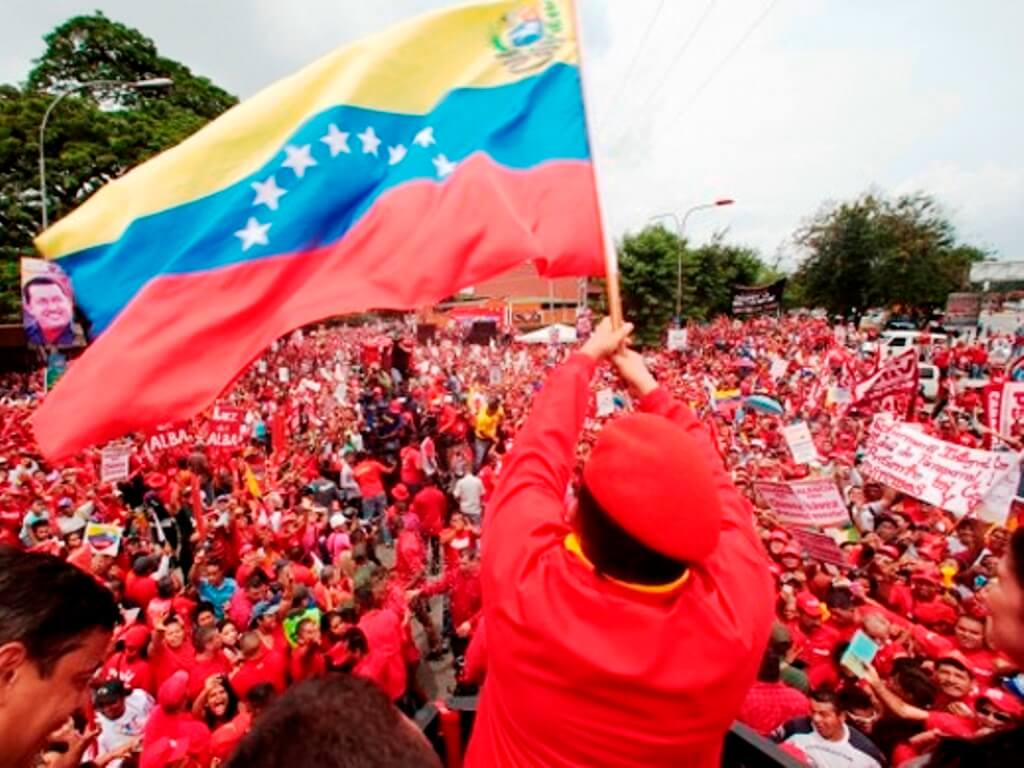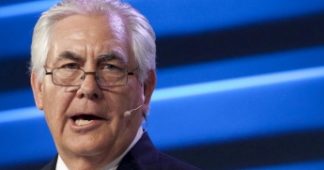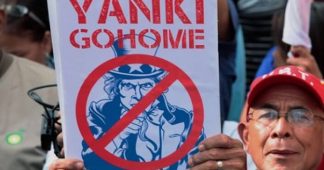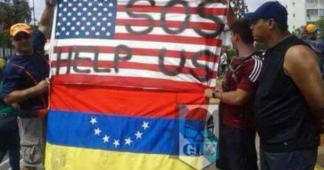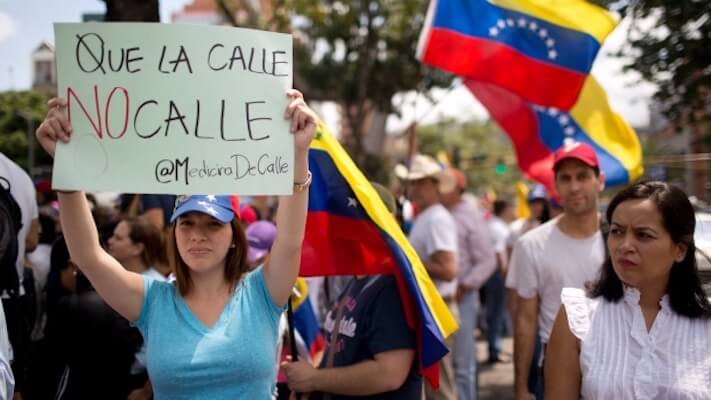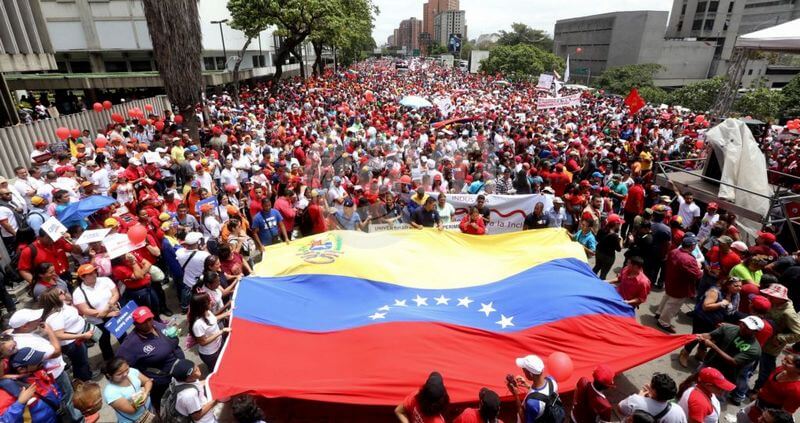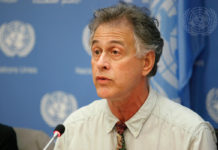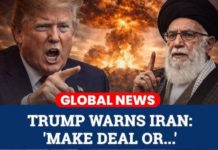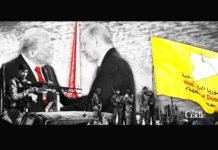Who will accuse the accusers?
A response to the statement by intellectuals against the Bolivarian Revolution of Venezuela.
Implicitly using the “J’accuse” formula, hours before the meeting in which the OAS would discuss –once again–, the possibility of intervening Venezuela, over a hundred Latin American, European and North American intellectuals and academics published a statement under the title of “Urgent International call to stop the escalade of violence in Venezuela”.This manifesto is a declaration of principles on the situation of the Bolivarian republic, which makes a diagnosis, attributes responsibilities and prescribes a solution for the crisis that is taking place in the Caribbean country.
We won’t insult the intelligence or moral values of those who signed (some of whom are “sacred cows” of the critical academic world) by questioning the depth of their political commitment or their interpretative competence. We’ll take each affirmation of the document for what it is: an erroneous thesis on the development of the Bolivarian Revolution of Venezuela. And, as such, we’ll analyse it, and prove that the accusers can and will be accused.
Also intellectuals should be accountable for their rights and their wrongs in this dramatic continental impasse, which could mean a conservative end to a progressivist political cycle, or the calm before a second left-wing wave in the region. A defeat of the Latin American people won’t be of no consequence for intellectuals and their lack of organicity, pedagogy or ability to form judgements.
The concept of “fourth-generation war” or “low-intensity war” is much more than a hyperbole to refer to the intensity of a particular situation. It’s an accurate description of a strategy for insurrection, by US imperialism, to obtain the toughest jewel of the crown: the Venezuelan revolution, which, like Cuba, is an offence to the imperialist aspirations of the United States regarding what they call their “backyard”.
Especially if we consider the economic and geopolitical importance Venezuela has to Donald Trump’s administration. The ability of Venezuela to reinvent the progressivist and left-wing experiences and take them to the limits of possibility with a daring policy of Latin American integration, as well as its sovereign control of strategic resources that are of core importance for developing countries, like oil and biodiversity. Only Venezuela, the birthplace of this new historical cycle, can, with its downfall, seal its defeat. This is understood by the US, but not by some of our most prestigious intellectuals.
Venezuela seems to be going through the painful transition between two of the stages conceptualized by Antonio Gramsci in his analysis of situation and strength correlation (an analysis of the degree of organization, awareness, and homogeneity reached by antagonic social groups). Venezuela has long ago advanced from a merely economic/corporative moment to a political moment, through the creation of a common identity shared by the masses (Chavism) and the global confrontation with dominant classes. The failed 2002 coup attempt, the failed oil strike of the right, and the proclamation of 21-century socialism and the official ideology were landmarks in this process.
However, this political moment that was sustained until 2013, and the subsequent tie in hegemony between both social blocks began to crumble with the death of Hugo Chavez Frias and was consummated with the advance of the imperialist positions: the electoral defeat of Kirchnerism in Argentina and the institutional coup to Dilma Rousseff in Brazil.
The third moment conceptualized by Antonio Gramsci, which is the inevitable political-military moment we’re heading towards. It was, paradoxically, reached not only due to the endogenous radicalization of Chavism, but also by the reaction of a local and transnational right, which is ardently vengeful.
Analyzing this political-military moment requires considering that the opposition’s barricades, the murder of Chavist leaders of urban and rural areas, the incessant infiltration of Colombian paramilitaries, the creation of Bolivarian militias, the strengthening of the military wing represented by Diosdado Cabello and the military patrolling of Venezuelan coasts by emerging powers, among other facts.
These are symptoms of a moment that calls for specific categories of analysis, to understand the militarist radicalization of US imperialism in its long but unstoppable global decline.
We believe that ignoring the magnitude of this process leads to superficial analyses that see “authoritarian tendencies”, “self-coups”, or unnecessary militarizations by the governments of Latin American countries. Always from the perspective of intellectuals who are quick to diagnose a “deficit” in democracy when it comes to our region, from eurocentric (but allegedly universal) perspectives on what democracy must be.
Of course there’s a process of militarization and an escalade of violence. But, far from being the result of internal factors, this militarization is constantly induced by imperialist aggression at all levels (diplomatic, political, economic, military, communicational, and financial). Or must we list the coups d’Etat imperialism promoted in Honduras, Paraguay and Brazil before the current onslaught?
Gross oversimplifications like the theory of the two demons fall short of explaining the causes of violence in Venezuela. What do they mean by “complex and shared causes that originated violence”? Or by naming, with apparent symmetry, right-wing “extremists” and left-wing “totalitarians”? To cast all doubts aside, they end by pointing out the only and implausible cause of the violence: The state and government of Venezuela! Precisely those who insist on peaceful dialogue!
What should have been done, according to these intellectuals, by Fidel Castro and the Cuban revolutionaries when Giron Beach was invaded by imperialist forces? Sit and talk with non-existent diplomatics while bombs fell on Cochinos Bay? Confront rifles with voting papers? Cautiously petition to the OAS?
The most rudimentary critical analysis must be able to separate the chaff from the wheat, and distinguish between cause and reaction when it comes to violence, and understand, like Antonio Gramsci, that there’s no peaceful or democratic solution (in the strictly neoliberal sense of the word) to class struggle. Sooner or later, dominant classes, lacking the ability to keep their power through elections, will turn to soft coups commanded by judicial or media corporations, and when these also fail, they will take up arms.
Therefore, this view that calls itself “beyond the prevailing polarization”, this vain attempt to envisage a clean truth behind the impurity of political struggle, seems impossible. Again, like Gramsci says, this is about “taking sides”, which doesn’t mean blindly following a political process or its leadership, but choosing the point of view from which criticism is made. The “organic intellectual” is not just a model of left-wing thinker, but the only one, in a strict sense of the term. It is she who reflects in with the organized people.
It’s telling that a manifest signed by renown academics lacks the most elementary categories of analysis of the arsenal of political science, which defeats the purpose of accurately describing the Bolivarian process. There’s no mention of social classes, nor the structural dependence of economy, nor imperialism–fundamental tools that every member of the Venezuelan communes has long ago incorporated to their political language, in this radical process of democratization and socialization of power.
Instead, we find in this statement a notorious fetichization of democracy in its liberal form. Because, how else can it be considered anti-democratic to combat a Legislative Assembly that has sworn in deputies elected through fraud, and that has attempted, without having the proper Constitutional attributions, to destitute President Maduro four times, in which effectively are four coup attempts, all of this without suspending the activities of said organism? How can they see an anti-democratic tendency in a process that is still actively supported by hundreds of thousands of people, and that sustains and grows democratic instruments such as the Communes and the Communal Councils? Where are the authoritarian elements found in a government that responds to institutional aggression and riots with the most empowering of responses, that is, with a calling for a participative process to vote on a new Constitution, moving forwards with this process that had been stagnated due to external onslaught and internal mistakes?
To rethink democracy, separate ideals from their imperfect institutional materializations, de-fetichizicing formal elements and understanding new, emergent forms, is indispensable to avoid falling prey of a liberal-republican, and ultimately colonialist, view on what democracy is.
Furthermore, we believe that not even a coherent liberal view could criticize the Bolivarian process which, like no other, has materialized formal liberal democracy with consultive, plebiscitary and revocative processes that are completely unprecedented.
There’s no pure democracy outside the class, national, ethnic, and sex/gender determinations of political struggle.
Democracy is and will be of workers, peasants, the poor, indigenous peoples, afro-descendants, students, migrants, the elderly, women. And it will only be conquered when the interests of the grassroots are manifested. Whether it is through the easy or the hard way, through constitutional or violent methods, through elections or through a painful civil war, it will be decided as always by those who have everything to lose, but also everything to win, in Venezuela and Our America as a whole.
Send adhesions to endefensadelpuebloenlucha@gmail.com
